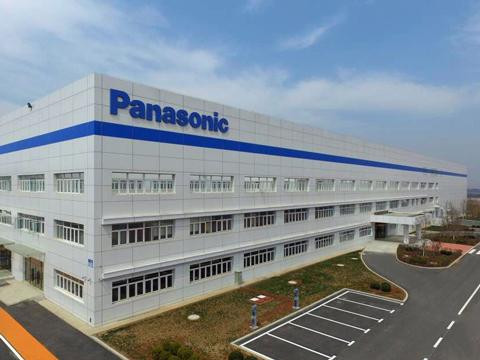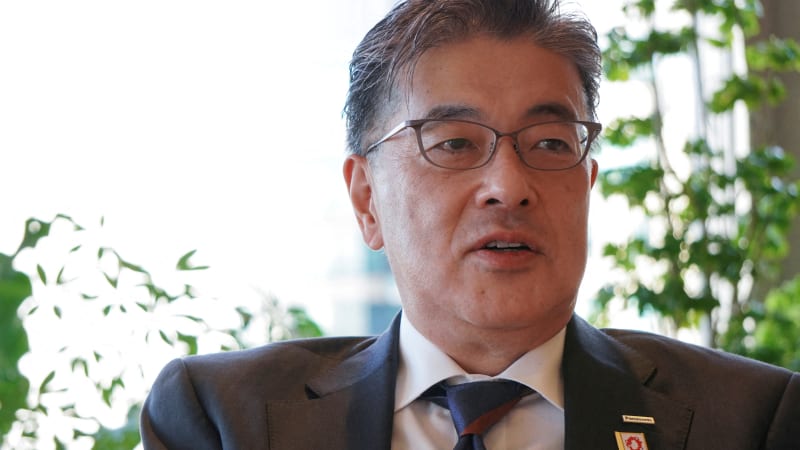Panasonic’s CEO, Yuki Kusumi, emphasized the need for the company’s battery business to prioritize productivity enhancement, hinting at a potential delay in constructing a third battery plant in North America due to the current slowdown in electric vehicle (EV) demand.
The battery unit, Panasonic Energy, initially aimed to make a decision about the new factory by the end of March. However, Kusumi indicated in an interview with Reuters that the decision would be made “when the timing is right.”
Speaking at the company’s Tokyo office on Friday, Kusumi emphasized the importance of thoroughly improving productivity before considering the establishment of a third location.

This directive comes in the wake of signals pointing to a cooling demand for EVs in the United States, prompting some automakers, including General Motors and Ford, to scale back their production plans.
Panasonic Energy already operates a plant in Nevada and has initiated the construction of a second facility in Kansas. In December, the company announced that Oklahoma, a previously considered location for a new factory, was no longer a candidate site.
The Kansas plant is anticipated to increase the annual auto battery capacity to 80 gigawatt-hours (GWh) by Panasonic Energy, with a goal of reaching 200 GWh by early 2031.
Kusumi underlined his primary instruction to the energy unit, which is to prioritize the augmentation of production volume from existing investments rather than deciding on the site for a third plant.
He emphasized that, considering the human resources requirements of a new plant, having fewer production sites is generally more advantageous.
Kusumi believes that there is potential to increase production capacity by optimizing processes, such as machine maintenance, acknowledging that time lags due to changing circumstances are inherent in any business.
Despite the global growth in consumer demand for EVs, Kusumi acknowledged the cooling trend in key markets like the United States and Europe.
He noted that the industry’s profitability is not as anticipated, partially due to higher interest rates making many EVs unaffordable for middle-income consumers. Moreover, consumers are awaiting the release of cheaper models currently in development.
Panasonic aims for the energy unit to enhance its manufacturing capabilities, ensuring profitability without relying on the U.S. Inflation Reduction Act (IRA), which catalyzed investments in new EV battery plants.
Kusumi highlighted that Panasonic wants the energy unit to generate profits independently, irrespective of government incentives like the IRA, aimed at fostering domestic production of EVs, batteries, and raw materials in the United States.

